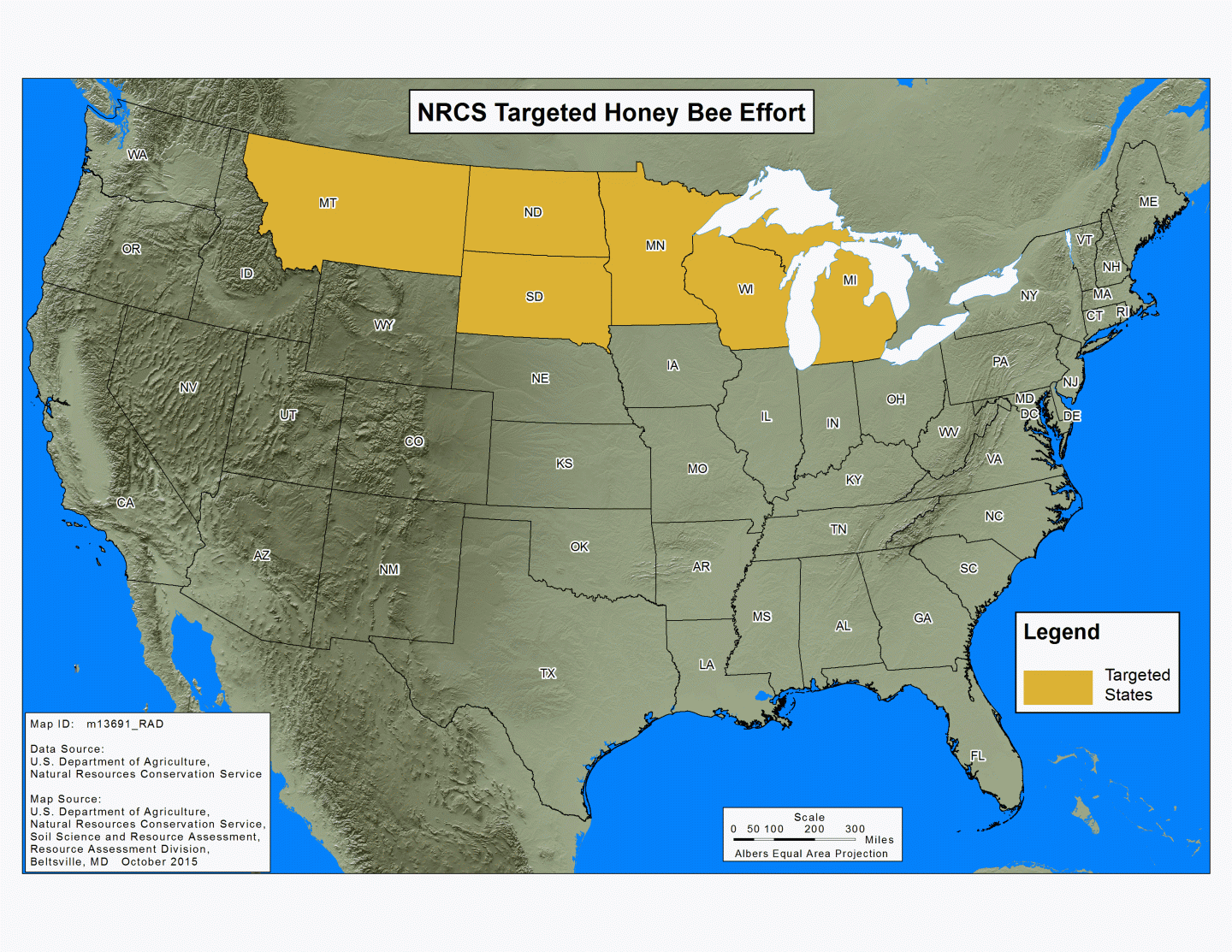
One out of every three bites of food in the United States depends on honey bees and other pollinators.
Visit the USGS Story and video here.
Honey bees pollinate $15 billion worth of crops each year, including more than 130 fruits and vegetables. Managed honey bees are important to American agriculture because they pollinate a wide variety of crops, contributing to food diversity, security and profitability.
But during the past 50 years, the number of managed honey bees have declined. Each winter since 2006, about 30 percent of beehives collapsed because of disease, parasites, poor nutrition, pesticide exposure and other issues.
NRCS is working with agricultural producers to combat future declines by helping them to implement conservation practices that provide forage for honey bees while enhancing habitat for other pollinators and wildlife and improving the quality of water, air and soil.

How Do NRCS Honey Bee Conservation Efforts Work?
NRCS provides technical and financial assistance to help producers provide safe and diverse food sources for honey bees. For example, NRCS helps producers voluntarily implement conservation practices such as planting cover crops, planting wildflowers and native grasses in buffers and areas not in production, and improving management of grazing lands. In total, more than three dozen NRCS conservation practices provide benefits to pollinators like honey bees. The Environmental Quality Incentives Program (EQIP), Conservation Stewardship Program (CSP) and Agricultural Conservation Easement Program (ACEP) provide assistance to help implement these practices.
To accelerate conservation to benefit honey bees, NRCS is targeting conservation efforts to where more than two-thirds of the populations spends summer months, pollinating crops and building strength to survive winter. NRCS launched the effort in 2014, and assistance is available for producers in Michigan, Minnesota, Montana, North Dakota, South Dakota and Wisconsin.
Now in its third year, the effort has already enhanced about 35,000 acres of land for honey bees. Producers wanting to participate in this effort should contact
their local USDA service center for more information.
How Do These Conservation Efforts Benefit Producers?
NRCS conservation practices designed to help honey bees and other pollinators also help reduce erosion, increase soil health, control invasive species, provide quality forage for livestock, increase populations of other beneficial insects and wildlife and make agricultural operations more efficient. NRCS provides technical and financial assistance to implement these practices, helping producers improve working lands and strengthening rural economies.
How Do These Conservation Efforts Benefit the Public?
Honey bees provide a tremendous ecological service in pollinating a variety of food crops. Additionally, conservation practices not only help improve honey bee health, but they also help improve the quality of water, soil and wildlife habitat.
Partners
NRCS works closely with conservation partners to expand habitat for honey bees even more broadly. For example, the Xerces Society for Invertebrate Conservation provides NRCS conservation experts with technical guidance on plant lists and pollinator habitat restoration techniques. NRCS also works closely with USDA’s Farm Service Agency to use the Conservation Reserve Program to help further Farm Bill support of honey bee conservation efforts.
Additionally, NRCS played a key role in the National Strategy to Promote the Health of Honey Bees and Other Pollinators, released in May 2015.

